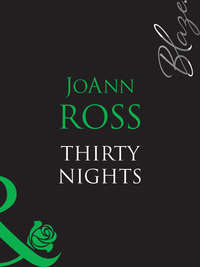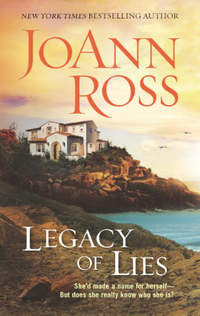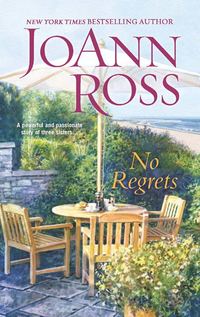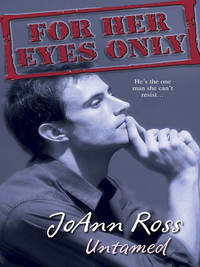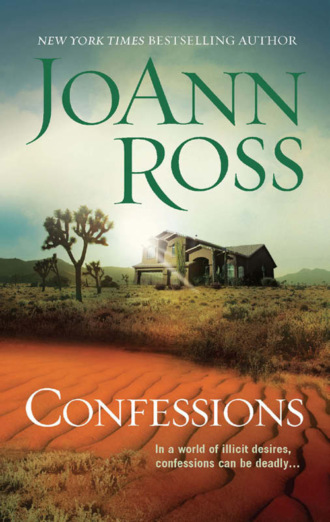
Полная версия
Confessions
“Ten-four,” she said. Trace would have had to have been deaf to miss the smug satisfaction in the dispatcher’s voice.
As he marched back out into the stormy night, Trace remembered a time when he’d genuinely loved being a cop. When he’d been filled with an overwhelming need to help.
He’d especially enjoyed being a homicide detective—the murder police. The top of the rung, the cream of the crop. The goddamn best. He’d gotten off on the crime scenes, the countless cups of coffee, the chain smoking, the pursuit, the face-to-face confrontation with a killer. And that inimitable sound of handcuffs clicking around the wrists of the bad guys had never failed to give him an adolescent rush.
He woke up each morning juiced, ready to hit the streets and save the world. But that had been in what now seemed like another lifetime.
Unfortunately, justice had proven to be not only blindfolded, but deaf and dumb as well and Detective Sergeant Trace Callahan had learned the hard way that one man couldn’t save the world from itself.
Now all he wanted was a chance to build himself a quiet, uneventful life where he didn’t have to worry about some coked-up drug dealer pumping bullets into him. As he climbed into the black-and-white Suburban, Trace considered that he thought he’d found exactly that when he signed his contract six months ago.
Cursing whatever lowlifes had so rudely intruded on his peaceful existence, he gunned the engine and headed, emergency lights flashing, toward the Fletcher ranch.
Whiskey River was sleeping as Trace drove through the darkened streets. Even in the slanting rain, the town had a certain charm about it, a quaintness that had little in common with the dirty business of murder.
Whiskey River, Arizona, was home to 350 full-time residents and at least triple that many during the summer, when vacationers came streaming north to escape the desert heat. If it looked familiar to first-time visitors, it should. Whiskey River had served as a movie set on more than one occasion.
Gene Autry, John Wayne and Clint Eastwood had all ridden horseback down Main Street. So had Doc Holliday and Wyatt Earp, but the make-believe cowboys had bigger displays in the local historical museum.
Originally settled more than fifteen hundred years ago by prehistoric people classified by archaeologists as the Mogollon Culture, the area had subsequently been home to Apaches, soldiers, prospectors, loggers and ranchers. While Tombstone residents were making headlines by shooting at each other, Whiskey River became known for its taverns and brothels.
Once upon a time, settlers had run into town for protection from marauding Indians. These days citizens tried to liven things up again by holding rodeos at the fairgrounds.
Five miles outside of town, Trace turned onto a narrow graded road that snaked its way in a breath-stealing ascension up the rocky escarpment of the Mogollon Rim.
He arrived at the ranch right behind the ambulance.
His deputy’s black-and-white was parked in front of the house. The bubble gum lights atop the cruiser were sending out flashing blue strobes. The driver’s door was open. As he passed the patrol car, Trace cursed and yanked the keys from the ignition. A recent graduate of University of Arizona, with a bachelor’s degree in criminal justice, J.D. Brown was intelligent, enthusiastic and showed a willingness to learn. He was also green as new grass and prone to the same mistakes made by rookies in jurisdictions everywhere.
The deputy was waiting at the door. “The senator’s in the den, just to the right of the front door,” he told the medical team. “He’s been shot in the side.”
“Is he conscious?” the female paramedic asked.
“In and out.”
“What about the wife?”
The deputy frowned. “She’s upstairs. But take care of the senator. It’s too late for her.”
“You sure?” Trace asked.
“She was ten-seven when I got here,” J.D. insisted.
Ten-seven. The police code for Out of Service. Crude, but applicable, Trace decided. “I spent summers working in the emergency room at Louis R. Pyle Memorial,” the younger officer, the son of a nurse, reminded Trace. “I sure as hell know a lost cause when I see it.”
Trace accompanied the trio into the book-lined den where he found a man clad in a pair of paisley silk boxer shorts sprawled on his back on the floor by the doorway. He was in his midforties, with the kind of firm, lean body that came from working out. His deep tan and sun-streaked hair suggested afternoons spent on a Georgetown tennis court. A small amount of blood was draining from what appeared to be a single wound in his side. He’d obviously been lying on the couch when he was shot. Blood spatters stained the fawn-colored leather.
Beside the couch was a table. Atop the table was an empty glass, an open briefcase and a telephone. The phone was off the hook. The desk drawers had been rifled through; papers were strewn across the floor. A black carry-on suitcase was beside the couch, unopened.
“Senator?” The female medic wrapped a blood pressure cuff around the man’s upper arm. The other paramedic slammed an oxygen mask over his face. “It’s okay. You’re going to be okay. We’re here to help.”
“My wife,” Alan Fletcher gasped, his words muffled by the plastic mask. “Help...Laura.”
Trace squatted down, bringing himself eye to eye with the injured man. “Can you tell me what happened, Senator?”
“I heard a s-s-shot.” He stuttered painfully. “Then another. At first I thought it was a dream, you know. By the time I realized they were r-r-real shots, one of the burglars, the one rifling my desk, s-s-shot me.”
“You were downstairs at the time of the shooting?” Trace knew that from the blood spatters, but he wanted to hear the senator’s explanation.
“I got in late.” He drew in a deep, shuddering breath. Even with the oxygen assist, the effort of talking seemed to be giving him great pain. “Damn f-f-flight delays. I didn’t want to wake Laura up, so I just crashed on the couch.”
“When was that?”
“About midnight.”
“Was the security system on when you arrived?”
“No. And I didn’t set it.” He groaned again. “Storms always set the damn thing off. I’ve been promising Laura... Oh, God.” He began to sob. “I had my secretary call the company yesterday. They couldn’t come out until after the fourth.”
He bit his lip and appeared to be struggling for calm. “If only I’d called sooner, this wouldn’t have happened.”
That might be true, but Trace wasn’t into Monday morning quarterbacking. “Did you happen to get a look at the guy who shot you?”
“Not really. He was wearing a mask.”
“A ski mask?”
“Uh-uh...” He closed his eyes. “It was brown. And sh-sh-sheer. Like he’d pulled a nylon stocking over his face.” He sucked in another breath. “Oh, God, it hurts,” he moaned.
“You’re doing great, Senator,” the paramedic advised. “Just try to stay calm. Everything’s going to be all right.”
“I heard the g-g-gunmen run out the door. I t-t-tried to get to Laura after I called 911. I was crawling across the floor. Then I guess I passed out....”
Tears welled up in his light blue eyes and ran down his cheeks in long wet ribbons. “Oh, C-C-Christ. How could this happen?”
No one in the room answered. While the paramedics continued to work on the senator, Trace left the den, gesturing for his deputy to follow.
“Turn on my overhead lights,” he said, handing J.D. the keys to the Suburban the Mogollon County supervisors had included in his deal as an enticement to sign.
It wasn’t every day a big-city crime buster was willing to come to work in the boondocks and they’d wanted to ensure he wouldn’t change his mind once he learned that jaywalking and the occasional drunk and disorderly was about as bad as it got in Whiskey River.
What they hadn’t realized was that Trace would have taken the job without the new truck.
“Check around the outside. See if you can find a point of entry. Also, with all the rain, there should be footprints.”
“Yessir.” J.D. snatched the keys with an enthusiasm that reminded Trace of himself in what seemed another lifetime.
Taking his .38 Detective Special from its hip holster, Trace climbed the stairs, all his senses on alert. The odds of the shooter still being in the house were slim to none. But Trace had the scars to prove that a cop couldn’t be too careful.
He studied the crime scene from the doorway of the master bedroom, his gaze sweeping over the warm pine flooring, the white walls adorned with expensively framed western art. The bed had been handcrafted from cedar logs. The headboard, along with the wall behind it, was marred by a sweeping, red-pink arc.
A quilt had slid halfway off the mattress. In the center of the bed a woman lay faceup, her arms outstretched, as if reaching for something, or someone, no longer there. Her palms were open, her fingers slightly curled. Her green eyes were fixed in an expression of vague surprise Trace had seen before. The drawers of the two nightstands on either side of the bed were open. As were those of the bureau. The contents of the drawers had been tossed haphazardly onto the floor.
Atop the dresser were various perfume bottles, a silver-backed mirror and a crystal-framed wedding picture. The smiling faces of Laura and Alan Fletcher looked out of the frame at the grisly scene. The glittering contents of a mahogany jewelry box had been dumped out, scattered across the gleaming pine planks.
Stepping over the damp towel lying on the floor by the dresser, Trace approached the bed.
Even as he noted absently that Laura Fletcher was still beautiful, even in death, he began to emotionally distance himself. It was not a deliberate decision. Rather, it was as if a self-protective switch had clicked on inside his brain. He’d developed the ability to detach himself early in his career.
In his sixteen years on the Dallas police force, he had been witness to the most basic of human evil—the taking of another life. When faced with the nude body of a female, who only hours earlier had, perhaps, been laughing and loving, a cop could not waste time pondering theological questions about man’s inhumanity to man.
What he had to concentrate on was whether that bloody hole in her breast was an entrance wound or an exit wound. He had to judge the distance and caliber of the weapon that had made that circular wound in her left temple.
And, as he lifted her wrist, clasping the flesh that was already growing icy now that the life had drained out of it, rather than notice that her fingers were long and slender, he took note of the blood on the fingertips of her left hand—which gave evidence that she’d been aware of being attacked—and wondered why it was that the senator’s dead wife wasn’t wearing a wedding ring.
J.D. had been right. There was nothing they could do for Laura Fletcher now. Except find her killer.
He took a notebook from his pocket and quickly sketched the position of the body, the bed, the rest of the crime scene. Then he went back downstairs and repeated the process in the den.
The paramedics had stabilized the senator and had him lying on a gurney, ready to wheel him out to the waiting ambulance.
“You taking him to Payson Hospital?”
“That’s the plan,” the paramedic answered. “His wound isn’t critical enough for air evac.”
“I’ll follow you.”
“What about Laura?” Alan Fletcher groaned. “Is she—”
“Don’t worry about her right now,” the paramedic broke in, exchanging a look with Trace. The senator’s color wasn’t good and the way he kept going in and out of consciousness suggested that he could go into shock. This wasn’t the time to tell the man his wife was dead. “Just worry about yourself, Senator.”
Trace followed them out. “Find anything?” he asked his deputy.
“No sign of false entry. But you’re right about the footprints. Got a real good set coming from the driveway. Tire tracks, too.”
“Good.” Trace nodded. “I’m going to call DPS and have them send over their crime lab guys.”
J.D.’s eyes widened at the idea of involving the state Department of Public Safety. “You’re bringing outsiders in?”
“I don’t have much choice,” Trace pointed out. “The average high school chem class probably has more equipment than we do. This is going to be a high-profile case. I want to make sure there aren’t any mistakes made.”
“Ben isn’t going to like this,” J.D. warned.
Ben Loftin. A lifelong resident of Whiskey River, cousin to the mayor, a fifteen-year deputy and the man who’d expected to be promoted to sheriff. From his first day on the job, Trace had suspected Loftin was also one of those redneck bullies who gave cops—especially those in small towns—a bad name.
“Ben Loftin isn’t sheriff,” Trace reminded his deputy gruffly. “I’m going into Payson with the senator. I want you to lock this place up tight and don’t let anyone in until the medical examiner and the crime lab guys get here.”
“Even Ben?”
“Especially Loftin,” Trace stressed. “From what I’ve seen of the guy, his investigative skills would make Barney Fife look like Columbo.”
J.D. began to laugh, then choked it off when one look at his boss’s rigid face told him the comparison hadn’t been meant as a joke. “I’ve got the tape in the trunk of the black-and-white,” he said. “I’ll cordon off the perimeter.”
Once again the deputy’s eagerness reminded Trace of himself and made him feel about as old as dirt. The near-fatal shooting that had taken his partner’s life had left Trace with scars—both physical and mental—that he figured he’d carry for the rest of his life.
“You do that. I’ll check in after I neutron the Senator.”
J.D.’s eyes widened. “You’re going to test the senator for gunpowder residue?”
“He was at the scene of a murder.”
“But he was shot.”
“So was his wife. His dead wife,” Trace said patiently.
“But he’s a senator.”
“And we’re cops. With a job to do. Which includes checking out all possible suspects.”
“Christ, the shit’s really going to hit the fan when this gets out,” the young man muttered.
“Don’t look now, J.D.,” Trace drawled, jerking his head in the direction of the ranch house. “But it already has.”
Конец ознакомительного фрагмента.
Текст предоставлен ООО «ЛитРес».
Прочитайте эту книгу целиком, купив полную легальную версию на ЛитРес.
Безопасно оплатить книгу можно банковской картой Visa, MasterCard, Maestro, со счета мобильного телефона, с платежного терминала, в салоне МТС или Связной, через PayPal, WebMoney, Яндекс.Деньги, QIWI Кошелек, бонусными картами или другим удобным Вам способом.


